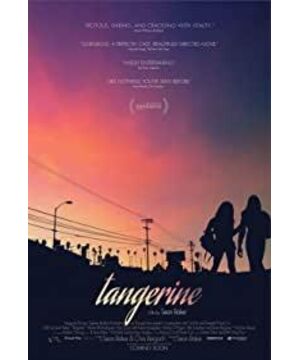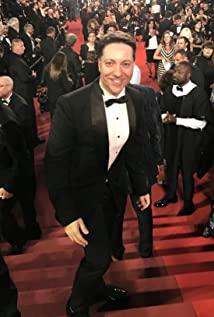The film mainly inserts fragments of life on the fringes of Los Angeles in a restaurant conversation between two transgender black prostitutes, Cindy and Alexandra, this "Quentinian" conversation actually represents a kind of normality in the American underclass. , a conversation between the two inadvertently unfolded the dramatic conflict in the film-Cindy's fiance cheated with a white prostitute during her 28-day prison sentence. , but this film does not intend to waste 88 minutes of the audience in such a cliché story, but chooses a more profound motif - the survival, loneliness and identity of marginalized people.
The reason why we talk about the survival of marginalized people is not just the two main characters of the movie - transgender black prostitutes, but also another branch character - Razmik, an Armenian taxi driver, the movie unfolds in the first half While Cindy and Alexandra acted separately, they were also describing this "Travis-style" marginal character. The film obviously has a composition and emotional portrayal of "Taxi Driver" on the camera, but "Orange" further emphasizes this marginal category, because Razmik is not only a low-level taxi driver, but also an Armenian immigrant who is frequently war-torn, and a dumb person who likes transgender sex trafficking.
Cindy stubbornly seeks out a white prostitute who cheated on her boyfriend, Alexandra distributing her little "concert" flyers, and Razmick for much of the film's pre-doughnut climax. Spend your time among the various passengers on the block and its own "quirks". The behavior of these three people actually represents the unease and distress of marginalized people, and the "rent-seeking of concerns" lacking a sense of social security. Cindy uses her boyfriend's difficult future marriage as a strong proof of her transformation; Alexandra tries to find the purest self in singing; and Razmick has difficulty adapting to her identity as a marginalized foreigner. It can only be used in a more "marginal" way - anesthetizing his "foreigner" dilemma with transgender sex trade.
The sound and picture effect of this film can be called an avant-garde trend, but it does not pretend to be obscure and difficult to understand. Street music, classical symphony, lyrical piano music and other music can instantly reflect the character's status; also on the screen, the title of the film - "Orange" is dyed red on every frame of the film, and the price is $8. Filmic Pro seems to be really good value for money, let the warm-toned "noisiness" permeate it, and eventually evolved into a noisy quarrel without any background music in the climax part. Secrets, fringes, ugliness, and shame are all on display in the public eye, at the mercy of the audience.
And in the silent long shot at the end of the movie, when Cindy and Alexandra remove their hoods and look at each other, they finally open up and lick each other's trauma.
Maybe the director Sean Baker has gone too far, but at least he has realized the creed that a good film can be made in extreme conditions. Based on this alone, this film has its own value.
For reprint or request, please add WeChat: X1095283911
View more about Tangerine reviews











